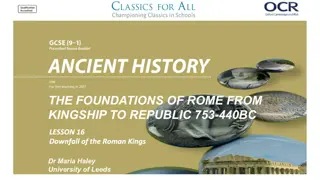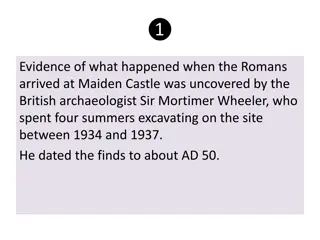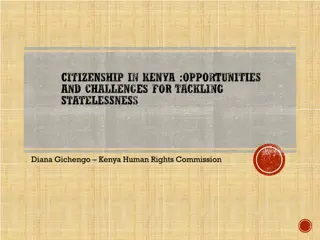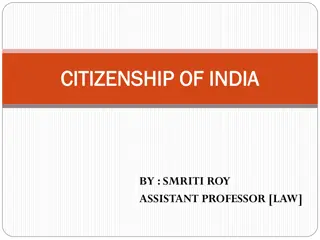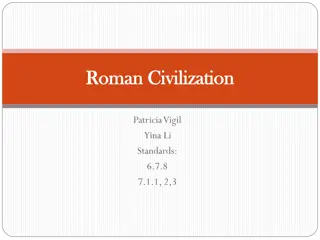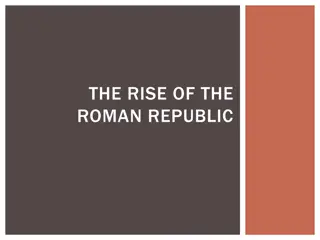Evolution of Citizenship: Roman Republic to Middle Ages
The concept of citizenship evolved from the Roman Republic's inclusive approach to a more legalistic framework detached from political agency. Post-Roman Empire, citizenship diminished, shifting focus to personal salvation in the Middle Ages. However, Italian city republics like Florence and Venice upheld elements of civic participation. Thinkers like Machiavelli and Rousseau emphasized active civic engagement for the common good.
Download Presentation

Please find below an Image/Link to download the presentation.
The content on the website is provided AS IS for your information and personal use only. It may not be sold, licensed, or shared on other websites without obtaining consent from the author. Download presentation by click this link. If you encounter any issues during the download, it is possible that the publisher has removed the file from their server.
E N D
Presentation Transcript
Citizenship in Roman Republic Roman republic developed a more pragmatic, legalistic and inclusive conception of citizenship. The Roman rulers extended privileges of citizenship to all, including the deprived resident foreigners, traders, merchants and plebians. Thus legitimized its rule and authority in the republic Underpinning motives: i) to dispel the simmering discontent; ii) to facilitate the collection of taxes; and iii) to reduce the overbearing military strength.
Roman Citizenship and Six Privileges Four Public Rights: i. service in the army; ii. voting in the assembly; iii. eligibility to public office; and iv. the right of action and appeal Two other private rights: v. right of intermarriage; and vi. right of trade with other Roman citizens
Consequences and Evaluation The status of citizenship in Rome was detached from an ethic of participation and became a thin and legalistic concept. Citizenship was reduced to a judicial safeguard instead of a status that denoted political agency. The concept was stretched to a breaking point; it became little more than an expression of the rule of law. Roman imperial citizenship was citizenship in name only.
Critical Evaluation of Roman Citizenship (Contd.) Derek Heater s view: Roman citizenship was both pragmatic and extensible in application and that very elasticity was the ultimate cause of the perishing of the ideal in its noble form. After the collapse of the Roman Empire in the West the importance of citizenship diminished even further.
Citizenship during the Middle Ages The pursuit of honour through the exercise of citizenship was replaced by the search for personal salvation. The Church replaced the political community as the focus of loyalty and moral guidance. However, the practice of citizenship did find expression in the context of several Italian city republics such as Florence and Venice which drew inspiration from the republican model of Greece and particularly Rome. They included an ethic of participation that was lacking in other forms of political community during this period.
Machiavelli and Rousseaus Contributions Both Machiavelli and Rousseau favoured the ideals of civic virtue and participation as the necessary elements of citizenship. For Machiavelli citizenship is not to be passively enjoyed but actively exercised as a duty and obligation to achieve good of the community. Rousseau through his concept of General Will insisted on citizens contributing to the pursuit of common good without being guided by selfish interests.
Citizenship in the 16thto the 18th Centuries Citizenship found voice as a massively influential political concept in the 16thto the 18thcenturies in the world historical events of the American War of Independence and the French Revolution. French Revolution: The Declaration of the Rights of Man and Citizen brought in the notion of the citizen as a free and autonomous individual who enjoyed rights equally with others and participated in decisions which all agreed to obey.
Citizenship in the 16thto the 18th centuries (contd.) Citizenship as a system of horizontal (equal) rights, as against the hierarchical (unequal) privileges, has its roots in the doctrines of the French Revolution. Development of capitalist market relations and the growing influence of liberalism in the 19th century. The notion of citizens as individuals with private and conflicting interests gradually gained primacy. Citizenship as civic activity, public spiritedness and active political participation relegated to the past.
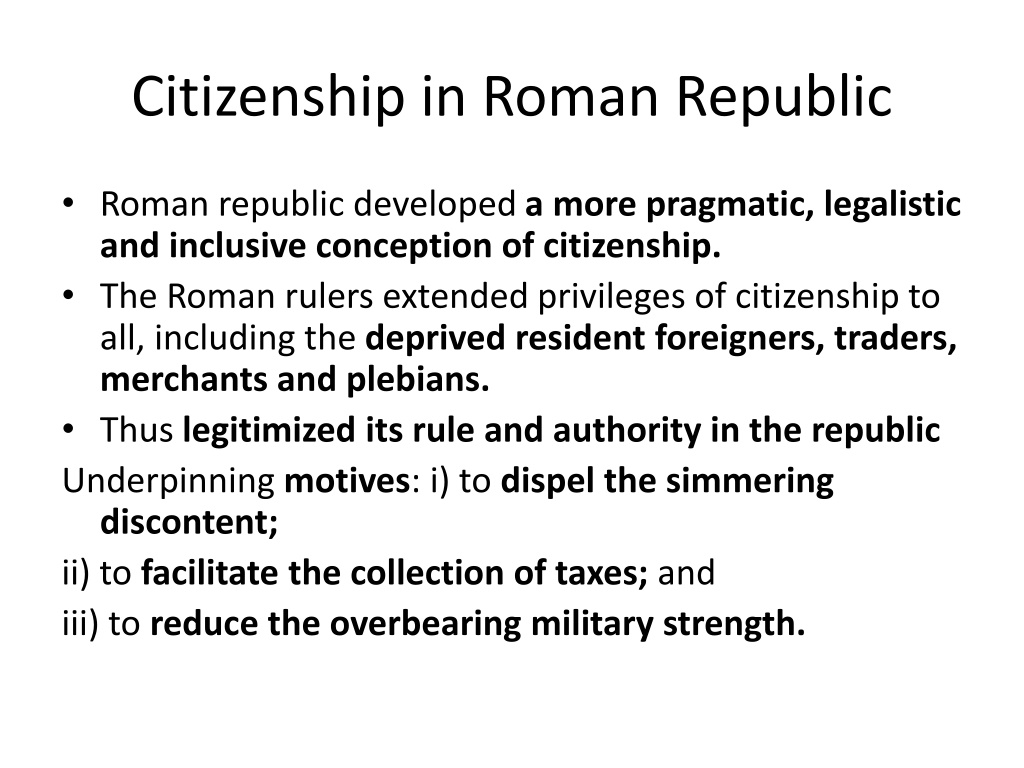

![READ⚡[PDF]✔ European Mail Armour: Ringed Battle Shirts from the Iron Age, Roman](/thumb/20552/read-pdf-european-mail-armour-ringed-battle-shirts-from-the-iron-age-roman.jpg)


